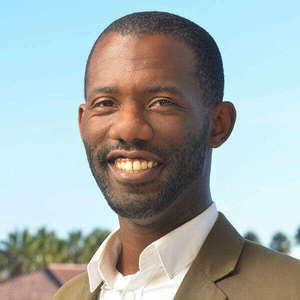"Reactive Separations for a Circular Nitrogen Economy" by William Tarpeh

Abstract
Over the past century, humans have altered the global nitrogen cycle so drastically that managing nitrogen has emerged as a grand engineering challenge. The Haber-Bosch process for industrial fertilizer production, which converts nitrogen gas into ammonia, outpaces wastewater nitrogen removal due to fertilizer runoff and 80% of wastewater being discharged without treatment. This net discharge of reactive nitrogen (e.g., NH4+, NO3-) threatens aquatic ecosystems and human health by inducing harmful algal blooms that affect 70% of U.S. surface waters and cost over $2.2 billion annually to remediate.
Beyond water pollution, the Haber-Bosch process consumes a disproportionate amount of energy and greenhouse gas emissions. There is an urgent need to reduce the environmental impacts of the anthropogenic nitrogen cycle.
Recovering ammonia from wastewater as a fertilizer, fuel, or commodity chemical is a promising method to meet this need, but requires ion-selective separations to extract high-purity ammonia from complex wastewater mixtures. In particular, Prof. Tarpeh’s team focuses on reactive nitrogen separations that both transform and purify nitrogen from complex wastewaters. This seminar will focus on their recent work designing nitrogen-selective processes, materials, and molecular mechanisms to recover and sense ammonia in wastewaters.
Biography
Prof. William Tarpeh is an assistant professor of chemical engineering at Stanford University. The Tarpeh Lab develops and evaluates selective separations in “waste” waters at several synergistic scales: molecular mechanisms of chemical transport and transformation; novel unit processes that increase resource efficiency; and systems-level assessments that identify optimization opportunities.
Prof. Tarpeh completed his B.S. in chemical engineering at Stanford, his M.S. and Ph.D. in environmental engineering at UC Berkeley, and postdoctoral training at the University of Michigan in environmental engineering. He has recently been honored as an Environmental Science & Technology Early Career Scientist, Forbes’ “30 Under 30” 2019 Science List, Gulf Research Program Early Career Fellowship, and Chemical and Engineering News Talented 12.
Contact the Department of Chemical and Biomolecular Engineering for the Zoom link.
Seminar sponsored by the Department of Chemical and Biomolecular Engineering